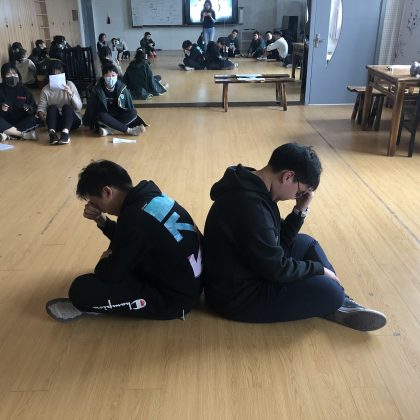The Eurovision Song Contest and Performing Race in Neo-liberal Europe
The latest issue of Theatre Research International includes an article by Katrin Sieg entitled ‘Wii Are Family: Performing Race in Neo-liberal Europe.’ This paper examines the flash mob dance Glow by the Afro-Norwegian duo Madcon, which was performed at the Eurovision Song Contest in Oslo, Norway, in 2010. The dance was modelled on the format of popular Wii dance games, and coordinated black and white dancers, families, mass publics as well as pre-recorded and live footage in order to choreograph European ‘unity in diversity’. In this blogpost, Professor Sieg provides us with fascinating insight into the context and implications of her research.
In 2010, I went to Oslo, Norway, as part of an international, interdisciplinary research group that brought together scholars from a range of disciplines and regions to study the Eurovision Song Contest, a wildly popular mega-event in Europe and beyond, over a period of two years.
The contest offers a fantastic opportunity for watching discourses about the ‘New Europe’ in action, that is, it shows what being ‘European’ means to western and eastern countries, central and peripheral, rich and poor countries. It is revealing both for the shared values demonstrated by performances (such as the emphasis on multiculturalism), and for the divergence of performance styles and underlying philosophies of what constitutes Europeanness (high culture? Euro pop? Folklore?).
Because each song must appeal first of all to viewers at home, but then get as many votes as possible from viewers in all participating countries in order to win, every song-performance must stress national uniqueness and fit into a common European frame.
In 2010, the stress of the deepening economic crisis and political tensions building between debtor and creditor nations already put a dampener on friendly relations among contestants. For instance, the Lithuanian group Inculto presented a rather ironic song about economic inequalities among EU member states, and the Greek song demonstrated contriteness about the profligate lifestyle, and vowed to change. Each contest thus provides a theatrical snapshot of the ‘state of the union,’ as it were.
While most years, hosting nations use the contest to advertise their own attractions, Norway in 2010 presented a ‘flash mob dance’ as entertainment during the interval, which sought to capture and choreograph Europe as a whole. In the history of the contest, this imaging of transnationalism was unique, since both participants and hosts usually do everything possible to showcase national accomplishments.
I was especially intrigued by the way in which black singers and dancers were included in this performance, and at the Eurovision Song Contest at large. In my article, I argue that it is emblematic of the way in which racial diversity is used to signal and celebrate European cosmopolitanism, but also typifies how the spectacle of black bodies often obscures local, racialized structures of exclusion or exploitation.
The article extrapolates from the flash mob dance Glow to show how neoliberalism has changed long-held ideas of racial difference. Although these look in many ways more appealing than colonial ideologies about a hierarchy of civilizations, a brief comparison with alternative representations of Afro-European culture demonstrates the limits and costs of neo-liberal notions of race choreographed by Glow.
To access Professor Sieg’s article, click here.





